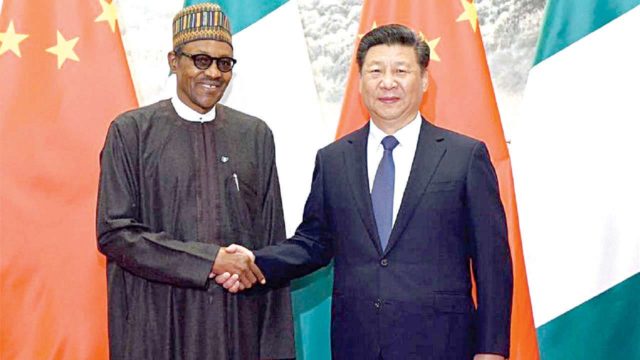BY DAYO ADESULU
In 2015, the Ugandan government got a loan from China through the Exim Bank in order to finance the expansion and upgrade of Entebbe International Airport.
Available documents show that the government indeed borrowed $325 million, reports the Monitor, a Ugandan news media.
The report also noted that the Exim Bank agreed and released $200m for the first phase of the upgrade and was later to provide an additional $125 million for the second phase.
The loan was borrowed at 2 per cent interest with a maturity period of 20 years, including a seven-year grace period.
The grace period will end next year – 2022.
The projection is for the airport, built in 1972, to move from 1.9 million passengers annually to approximately 6.1 million passengers and 172,000 tonnes of cargo per year by 2033.
There is however fears from Uganda that the airport might be taking over by China if the country fails to meet with the payment due to the clauses imbedded in the loan agreement.
In its reaction, a probe by the parliament indicated that some of the clauses imposed on the loan were not favourable and could lead to a potential forfeiture of the airport in case of default.
“I apologise that we shouldn’t have accepted some of the clauses,” The Minister of Finance of Uganda Matia Kasaija told committee members in response to questions asked by the legislators.
The Uganda Civil Aviation Authority (UCAA) officials flagged up to 13 clauses in the loan agreement with China as “unfair and (being able to) erode the sovereignty of Uganda.”
According to reports, the Ugandan government had sent a delegation to China to renegotiate the loan terms; this turned out to be unsuccessful as China authorities refused to alter the terms.
The revelation that the Uganda government signed an agreement with onerous conditions has raised questions about the scrutiny and due diligence that bureaucrats conduct before committing the country internationally. The legislators who led the probe were also accused of approving the loan request that contained toxic clauses, reports the Monitor.
It further stated that Exim Bank once froze cash flow to the contractor, citing violation of the loan agreement after UCAA failed to implement some of the clauses, which were not favourable to Uganda.
However, the country’s Attorney General, Kiryowa Kiwanuka has said Uganda can meet the China loan terms and keep the airport.
Kiwanuka said the “Contracts in our view are bad when you put out obligations which are impossible of performance.”
“The obligation in this contract is all capable of performance,” Bloomberg reports.
Recall that in late November 2021, multiple reports claimed that the Chinese government is ready to take over the only Ugandan international airport – Entebbe International Airport.
But is there any lesson the Nigerian government and other African countries can learn from the errors the Uganda government made in the loan contract with China?
Can the Nigerian government and other African countries please make public the loan clauses it signed in the process of obtaining loans from China and other Arabian countries.
Nigeria’s debt to China, France, Japan, India and Germany rose to $4.26bn as of June 30, 2021 from $3.85bn at the end of 2019, according to data obtained from the Debt Management Office.
An analysis of the data showed that the country spent $402.74m in the 18-month period servicing bilateral loans, even as it borrowed $400m.
As of December 31, 2019, Nigeria owed $3.18bn to the Exim Bank of China, $76.13m to France’s Agence Francaise Development, $361.75m to Japan International Cooperation Agency, $32.14m to the Exim Bank of India, and $202.27m to Germany’s Kreditanstalt Fur Wiederaufbua.
The bilateral loans accounted for 13.89 per cent of the country’s total external debt of $27.67bn as of the first quarter of 2020.
A total of $94.99m was paid as debt service for bilateral loans in Q1 2020, with China and India $94.61m and $382,310 respectively. Japan, France and Germany got nothing within this period.
The bilateral loans increased by $110m to $3.95bn on June 30, 2020, accounting for 12.54 per cent of the total external debt of $31.48bn.
The country spent $14.26m servicing the bilateral loans in Q2 2020, with France and Germany getting $14.22m and $44,340 respectively while China, Japan and India got nothing.
The debt owed to the five countries rose by $130m in Q3 to $4.08bn on September 30, 2020, making up 12.74 per cent of the total external debt of $31.99bn.
The cost of servicing bilateral loans stood at $114.6m in Q3, with China, India and Germany getting $100.86m, $412,220 and $13.32m respectively, while Japan and France got nothing.
Nigeria’s total indebtedness to these countries fell slightly by $2m to $4.06bn at the end of 2020, accounting for 12.17 per cent of the total external debt of $33.35bn as of December 2020.
Meanwhile, the Chinese government has debunked the claim on taking over the Uganda’s airport. Perhaps waiting for 2022, the deadline for payment.
The Chinese Embassy in Uganda said, “No project in Africa has ever been ‘seized’ by China because it could not repay its loan. On the contrary, China firmly supports and is willing to continue to make efforts to improve Africa’s capacity for independent development”.
This is not the first time news of China taking over an airport in Africa is being circulated. In 2018 the Zambian government refuted claims that China is set to take over Kenneth Kaunda International Airport for defaulting on loan repayment.
Fact check reports that the Uganda Airport has not been taking over by China as previously reported by many media platforms.
